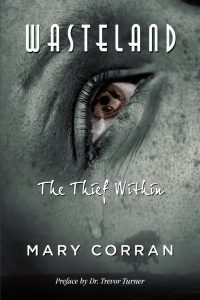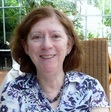Mary Corran: Writing as a Private Art
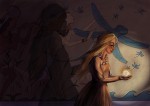
It’s a very great pleasure to welcome Mary Corran to the Guest Blog today; Mary and I were fellow SFF authors on the Orion Millennium list back in the day when it was new and I’m showcasing some of the gorgeous original covers as well as her currrent (also gorgeous) ebook covers.
No One Knew She Was There
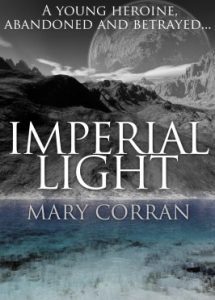
Mary Corran
When I was doing my MA in Women’s Studies, I was criticised for not writing from personal experience; it was much easier to globalise. Thus I start here as an active and ardent feminist, of my own definition, and atheist. I don’t know about the experience of male writers, and if it differs from that of women. Perhaps such a difference might be defined by the size of respective egos, but that is probably more personal than gendered. After working as a stockbroker in the City for ten years, some of my thoughts are unprintable. Some of the old brigade simply couldn’t cope with female colleagues; their brains seemed unable to encompass a woman in a position of authority (intellectually speaking, at any rate).
During my MA studies, we dwelt a lot on the Victorian era and the legal invisibility of women after marriage. At 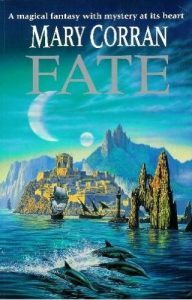 the same time, however, there were many successful women writers – such as Sarah Grand and Elizabeth Gaskell, who claimed to have earned more from her work from her work than Dickens. Yet it is hard not to think about the Brontes, with their male pseudonyms, nor to ignore that fact that even today, women writers may be advised to use only initials, to disguise the fact that they are women. Boys and men, we are told, are less willing to read books attributed to female authorship. Even JK Rowling was so advised. In response, I admit that I tend to concentrate on books written by women. Some male writers, of course, pass the test, and my nephew has once or twice accused me of misandry.
the same time, however, there were many successful women writers – such as Sarah Grand and Elizabeth Gaskell, who claimed to have earned more from her work from her work than Dickens. Yet it is hard not to think about the Brontes, with their male pseudonyms, nor to ignore that fact that even today, women writers may be advised to use only initials, to disguise the fact that they are women. Boys and men, we are told, are less willing to read books attributed to female authorship. Even JK Rowling was so advised. In response, I admit that I tend to concentrate on books written by women. Some male writers, of course, pass the test, and my nephew has once or twice accused me of misandry.
I cannot speak for women as a whole, but I know I do have a tendency towards desiring invisibility. For me, writing is a very private event. I don’t like people even looking at me as I write. I fear it comes with a primitive suspicion that my mind can be read, and thought must be hidden at all cost. I was very grateful at Oxford to have tutorials almost always alone, so that I could read my essays to only one audience.
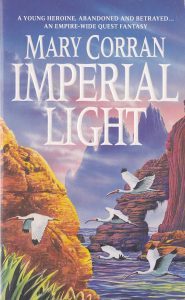 I don’t think that this is an inherited fear. Women in my family were strong, intellectual and efficient. At the same time, however, they were curiously male-centred. My mother, an Aegean archaeologist, who obtained the best first in her year at Cambridge, had suffered from paternal neglect. Her father, a renowned Orientalist, valued his son (a surgeon), but not his daughter. He believed, I am told, that two women in conversation were a conspiracy. I learned, during my determination to interest my mother in my MA, that she had essentially thought of herself as a man in respect of her work. Yet my sister and I grew up certain that women could do anything – climb mountains, travel all over the world, walk alone through Greece in the 1930s, chop wood. It wasn’t that there were limitations on what women could do, but on what the world seemed willing to believe they could do.
I don’t think that this is an inherited fear. Women in my family were strong, intellectual and efficient. At the same time, however, they were curiously male-centred. My mother, an Aegean archaeologist, who obtained the best first in her year at Cambridge, had suffered from paternal neglect. Her father, a renowned Orientalist, valued his son (a surgeon), but not his daughter. He believed, I am told, that two women in conversation were a conspiracy. I learned, during my determination to interest my mother in my MA, that she had essentially thought of herself as a man in respect of her work. Yet my sister and I grew up certain that women could do anything – climb mountains, travel all over the world, walk alone through Greece in the 1930s, chop wood. It wasn’t that there were limitations on what women could do, but on what the world seemed willing to believe they could do.
My sister and I were partially invisible in our household, in our growing years. My mother believed my father’s work should not be disrupted by two children. We grew up knowing we were not of the first importance. I am not, nor was not, bitter about this, yet it did create wide spaces between the generations and understanding of each other. I always wanted to write, and I read, with real envy, of Rumer Godden’s experience, where her family had her tutored to aid her future career. I never told anyone I wanted to write fiction. Academic writing was what mattered. I remember my mother saying that it was incredibly cruel to refuse to tell a scholar they were dying of cancer, because it meant that their work might not be completed before their death. Work was more important than relationships.
Growing up meant learning to define myself by other than family ties: to be only me, not anyone’s daughter or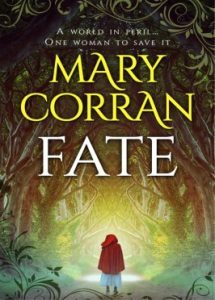 sister or friend, and to try and value that self. This was allied to a common insecurity: I didn’t want people to look at me. The words Photo and Mary, in the same sentence, invariably produced the comment ‘such a pity you always look so plain in photographs’. My brains were valued, as the life of the mind was in our household. This is a long way round of saying that when I married I adopted my husband’s surname, because it meant that – when I was at Oxford – few people knew who I was, except Mary Corran. I kept that name after our divorce because it was my working name. I thought of changing it to something else – my birth name was Mary Waterhouse – but none of my friends agreed with my choices! I am Mary, but the rest doesn’t matter.
sister or friend, and to try and value that self. This was allied to a common insecurity: I didn’t want people to look at me. The words Photo and Mary, in the same sentence, invariably produced the comment ‘such a pity you always look so plain in photographs’. My brains were valued, as the life of the mind was in our household. This is a long way round of saying that when I married I adopted my husband’s surname, because it meant that – when I was at Oxford – few people knew who I was, except Mary Corran. I kept that name after our divorce because it was my working name. I thought of changing it to something else – my birth name was Mary Waterhouse – but none of my friends agreed with my choices! I am Mary, but the rest doesn’t matter.
When I worked in the City, I enjoyed writing research, and we had a great deal of leeway in how and what we wrote. Yet I saw the time was coming when I had to take the plunge and attempt fiction. I was lucky in that I was awarded a contract and went on to publish my first book, Imperial Light. To my surprise, my niece and mother loved it.
The ecstasy from receiving my first book contract lasted, but not very long. I had problems with an editor who felt my heroine/s weren’t strong enough. I wanted to write about women who achieved wonderful things without becoming surrogate men. My favourite fantasy writers at the time were Andre Norton – and what a wonderfully ambiguous name – and Marian Zimmer Bradley, whose books explored women’s relationships and sexuality in work far removed from that of Robert Heinlein. I think you have to believe you have something to say in your novels as well as a story to tell. It can be a discussion, in the book or with the reader. That, too, is a form of conflict.
Publication of your work is both all that is desired, but dangerous. Writing is a private art, but when published it enters the public sphere. Suddenly, you, personally, become visible. I have read books written by people I know well, and think I can see where thoughts originated. But I could easily be wrong. And once published, you come under personal scrutiny. Anyone is free to read your book and comment on its quality, content – anything at all. You have no right to refute what you may feel to be misunderstanding, or any other form of criticism. But writers must expect criticism. We have it all along the process, from agent and editor to reviews.
You need to have confidence in your work, and I think that means in the subject you discuss as well as the story. And you need to develop that confidence in the absence of friends or family. Rejection is painful. I found courage in the examples of Minette Walters, and JK Rowling, both rejected many times by publishers, but who carried on until the quality of their work was recognised.
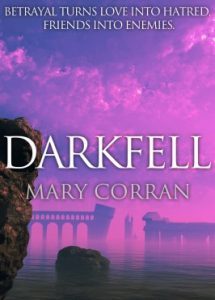 Others have said that editors have no problem with women writers, and I am sure that is true. Yet if you look at the lists of top sellers in areas such as thrillers and spy novels, as well as in SF and Fantasy, male writers do seem to rate higher. I have always wondered whether this is because of our odd value system. Violence sells (especially serial killers, or alien wars). Lord of the Rings, of course, is ideal. Almost no women, and a lot of blood and guts and brute force. Thus courage, as some define it. Of course there are plenty of women writers capable of producing quite as much terror and mayhem. I, however, am not of this ilk. I am more interested in other kinds of conflict. In Darkfell, I wanted to deal with temptation, how it begins, and when and if it can be resisted. At what stage is it possible to call a halt? Fate was in part about the question of predestination and free will. Of course, you want a good story with the themes, and good and evil are inherent in all tales. But is this enough? What if people think a book without lots of physical conflict is boring?
Others have said that editors have no problem with women writers, and I am sure that is true. Yet if you look at the lists of top sellers in areas such as thrillers and spy novels, as well as in SF and Fantasy, male writers do seem to rate higher. I have always wondered whether this is because of our odd value system. Violence sells (especially serial killers, or alien wars). Lord of the Rings, of course, is ideal. Almost no women, and a lot of blood and guts and brute force. Thus courage, as some define it. Of course there are plenty of women writers capable of producing quite as much terror and mayhem. I, however, am not of this ilk. I am more interested in other kinds of conflict. In Darkfell, I wanted to deal with temptation, how it begins, and when and if it can be resisted. At what stage is it possible to call a halt? Fate was in part about the question of predestination and free will. Of course, you want a good story with the themes, and good and evil are inherent in all tales. But is this enough? What if people think a book without lots of physical conflict is boring?
And this returns to the subject of invisibility, and how others consider your own value system. Once your book is out there, you will probably be hurt. Not everyone will like your book, or you. They will not know you, but that is unimportant. People make assumptions about you through your writing. Well, we allow ourselves the privilege of valuing other works. But words do hurt . And I am afraid, at times, of being out there, waiting for someone to throw the first rotten tomato. I prefer to be unseen. But that doesn’t sell books…
I was writing my fourth book. Fortune, when I finally succumbed to a mental breakdown. They suggest creative people are more prone to mental illness, and the population of the psychiatric wards could serve as evidence. Everyone has a story. I cracked up for many reasons, not least of which was feeling without value. My work meant nothing to me. I starved myself because I thought then that my small size would give people a lesser target for attack. I wanted to hide from everyone, and escape.
It’s a pity that the breakdown didn’t take another year. Fortune dealt with a colony of refugees, from many different countries and cultures, and I wanted to explore how they coped with all each other’s ideas and values. Yes, with a view to mocking some, I admit. I haven’t the courage to return to the third I had written.
But my ire, at present, is not about being almost invisible as a writer (surely mostly my own fault), but a much more global question of human values. I shouldn’t be surprised that my own questions don’t seem relevant in a world where football rules a huge percentage of the daily news, and where companies are being encouraged to make it easier for fans to watch their own matches in this coming conflict. And I recall one reviewer said, of Fate , that surely (in 1995), there was no need for this outdated feminism. This, when the imbalance of women in the world, in numbers and in poverty far outclassing men, has grown, not shrunk.
No, this is not the world for me, I think. I cannot reconcile what I see to what I am shown daily on all media. I am unseen by it, and that is the way I prefer it at present. Feminists always said that the personal was political. I reserve my strength for what I can affect. I live with two cats. I try to help with local issues, and I wrote Wasteland to see if my own experiences of mental illness could be of use to other sufferers and medical persons. That took courage, for me. And I’m glad I did it, even if it makes readers devalue me, as only a shadow of once I was.
